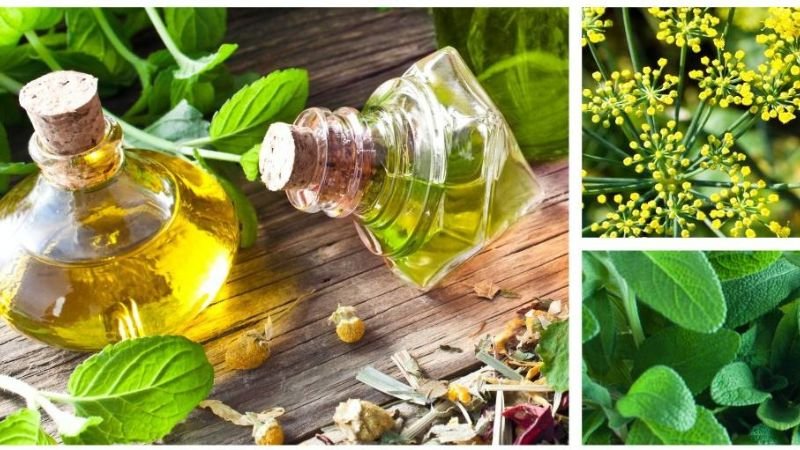Anxiety is a common mental health concern that affects millions of people worldwide. It can range from mild worry to severe panic attacks, interfering with daily life and overall well-being. While conventional treatments such as therapy and medication are effective for many, there is a growing interest in natural remedies, particularly herbal treatments, for managing anxiety. Herbs have been used for centuries in traditional medicine to promote relaxation, reduce stress, and restore emotional balance. Today, scientific research supports the use of certain herbs as complementary or alternative treatments for anxiety, offering a gentle yet effective approach for those seeking natural solutions.
Understanding Anxiety and Its Impact
Anxiety is more than occasional nervousness. It is a persistent feeling of unease, fear, or worry that can manifest physically through symptoms like increased heart rate, rapid breathing, sweating, and muscle tension. Common types of anxiety disorders include generalized anxiety disorder (GAD), panic disorder, social anxiety disorder, and specific phobias. While the exact cause of anxiety varies, it often results from a combination of genetics, brain chemistry, personality, and life events. Prolonged anxiety can affect both mental and physical health, making effective management essential.
Why Choose Herbal Treatments for Anxiety
Herbal treatments appeal to many because they are generally considered natural, less likely to cause severe side effects, and can be integrated into daily wellness routines. For individuals seeking a holistic approach, herbs can support relaxation and mood balance without relying solely on prescription medication. However, it is important to note that while herbal remedies can be effective, they are not a substitute for professional medical care, especially for severe anxiety. Consulting a healthcare provider before starting herbal treatment is recommended.
Popular Herbs for Anxiety Relief
Chamomile
Chamomile is one of the most well-known herbs for calming the nervous system. Often consumed as tea, chamomile contains antioxidants that bind to certain receptors in the brain, promoting relaxation and reducing anxiety symptoms. Several studies suggest that chamomile extract can significantly reduce anxiety in individuals with generalized anxiety disorder. Drinking chamomile tea before bedtime can also improve sleep quality, which is often affected by anxiety.
Lavender
Lavender has a long history of use for stress and anxiety relief. Its calming aroma, whether inhaled through essential oils or taken in supplement form, can reduce nervous tension. Research indicates that lavender oil capsules may be as effective as some anti-anxiety medications without the sedative side effects. Diffusing lavender essential oil in a room, adding it to a bath, or applying it to the skin with a carrier oil can help create a sense of peace and calm.
Passionflower
Passionflower is traditionally used to treat anxiety and insomnia. It works by increasing levels of gamma-aminobutyric acid (GABA) in the brain, which helps reduce brain activity and induces relaxation. Studies have found that passionflower extract may be as effective as certain prescription medications in managing anxiety, with fewer side effects. It is often taken as a tea, tincture, or capsule.
Valerian Root
Valerian root is commonly known for its sleep-promoting effects, but it also has mild sedative properties that can help reduce anxiety. It is believed to work by increasing GABA levels in the brain, similar to passionflower. While valerian is more popular for insomnia, it can be helpful for those whose anxiety is linked to poor sleep. It is available as capsules, teas, and liquid extracts.
Ashwagandha
Ashwagandha is an adaptogenic herb used in Ayurvedic medicine to help the body cope with stress. It helps regulate cortisol, the stress hormone, and promotes a calm state of mind. Research suggests that ashwagandha supplementation can significantly reduce stress and anxiety levels, making it a powerful natural ally for mental wellness. It is commonly available in powder or capsule form.
Lemon Balm
Lemon balm, a member of the mint family, is known for its soothing properties. It has been used for centuries to improve mood and cognitive function. Studies show that lemon balm can help reduce anxiety, promote relaxation, and improve sleep quality. It can be consumed as tea, tincture, or in capsule form, and pairs well with other calming herbs such as chamomile.
Kava
Kava root, native to the South Pacific, is traditionally used in ceremonial drinks for its calming effects. Kava has been found to significantly reduce anxiety symptoms by affecting neurotransmitters in the brain. However, due to potential risks of liver damage with excessive or improper use, it is essential to use kava only under the guidance of a qualified professional.
How to Use Herbal Remedies for Anxiety
Herbal treatments can be consumed in various forms including teas, capsules, tinctures, essential oils, and even in food preparations. Teas are a gentle and enjoyable way to incorporate herbs into daily life, while capsules and tinctures offer more concentrated doses. Essential oils can be used in aromatherapy for quick relaxation. Dosage and frequency depend on the specific herb, individual health condition, and desired effect. Always start with small amounts to assess tolerance.
Precautions and Considerations
Although herbs are natural, they can still cause side effects or interact with medications. Pregnant or breastfeeding women, individuals with chronic illnesses, and those taking prescription drugs should consult a healthcare provider before starting herbal treatments. Some herbs, like kava and valerian, should be used with caution due to potential health risks if taken in excess.
Combining Herbal Remedies with Lifestyle Changes
Herbal treatments for anxiety work best when combined with healthy lifestyle habits. Regular exercise, balanced nutrition, adequate sleep, and mindfulness practices such as meditation or yoga can significantly improve anxiety symptoms. Reducing caffeine, alcohol, and processed foods also supports better mental health. A holistic approach that blends herbal remedies with positive daily habits often yields the best results.
Final Thoughts
Herbal treatments offer a gentle and natural way to manage anxiety, providing relief without the harsh side effects of some conventional medications. From chamomile tea to ashwagandha supplements, nature provides a variety of plants that can help soothe the mind and promote emotional balance. However, herbal remedies should be used responsibly, ideally under professional guidance, and as part of a broader self-care plan. By combining the wisdom of traditional herbal medicine with modern healthy living practices, individuals can take meaningful steps toward a calmer, more peaceful life.
FAQs
1. Can herbal remedies completely cure anxiety?
Herbal remedies can help reduce anxiety symptoms, but they are not a guaranteed cure. For some people, they may work best as part of a broader treatment plan that includes therapy, lifestyle changes, and, if needed, medication.
2. How long does it take for herbal remedies to work for anxiety?
The effects vary depending on the herb and the individual. Some people may feel calmer within an hour of using certain herbal teas or essential oils, while others may need several weeks of consistent use to notice significant improvement.
3. Are there any side effects to using herbs for anxiety?
Yes, some herbs can cause side effects such as drowsiness, headaches, or digestive upset. Others, like kava, may pose risks to liver health if misused. Always start with a small dose and consult a healthcare professional.
4. Can I take herbal remedies alongside prescription anxiety medication?
It is possible, but not all herbs are safe to combine with medications. Some herbs can interact with prescription drugs, altering their effects. Always consult your doctor before mixing treatments.
5. Which herbal remedy is best for anxiety?
There is no single best herb for anxiety; it depends on individual needs and responses. Chamomile and lavender are mild options for general relaxation, while ashwagandha and passionflower may be more suitable for chronic stress or sleep-related anxiety.


